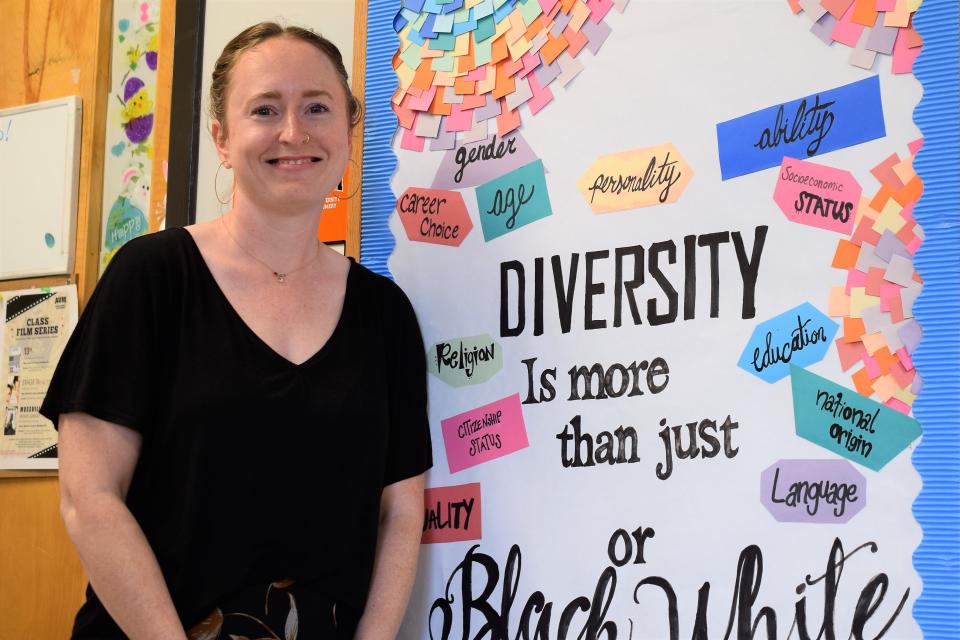AUM’s Sutton studies 'shadow pandemic' of gender-based violence
According to the World Health Organization, the COVID-19 pandemic has so far infected over half a billion people and claimed almost 7 million lives worldwide. But in addition to the well-documented cases of death, illness, and the resultant economic impact, a shadow pandemic of domestic violence towards women has arisen since 2020 after governments orchestrated lockdowns and stay-at-home orders to slow the disease’s spread.
“My research has focused on the intersection of COVID-19 and intimate partner violence (IPV) with a focus on women here in Alabama,” said Dr. Amber Sutton, an assistant professor of social work in the College of Liberal Arts and Social Sciences at Auburn University at Montgomery.
An advocate of providing services to victims of domestic violence in the state, Sutton also collaborates with Dr. Shannon Davis at Montgomery’s One Place Family Justice Center.
“We are examining myths and perceptions about domestic violence from residents and professionals across the state,” explained Sutton, who recently reviewed the increase in IPV and femicide (female homicide) for a March article in the Journal of Family Violence.
“COVID-19 exacerbated circumstances for those experiencing violence and intensified lethality for women,” said Sutton. “I looked at femicide and rates increased drastically, particularly in the initial stages of the pandemic due to lockdown orders, loss of employment, isolation, etc. It also took a toll mentally on those providing services and highlighted major dysfunction in our social, economic and political systems.”

As a licensed clinical social worker for over a decade, Sutton understands the personal emotional risk that may arise from studying a disturbing issue such as domestic violence.
“I am deeply connected to my work and carry the survivors and their stories with me,” she explained. “But I am boundaried, which is the only way I have been able to sustain myself. Both self-care and community care are critical components of how I live. Positive relationships and laughter help keep me grounded.”
Ironically, the pandemic impacted Sutton’s research methodology by expanding how she connects and networks with others. “Prior to COVID-19, I would have never dreamt of interviewing, teaching, or facilitating groups online – but here we are! As a result, I have been able to reach a wider audience.”
While the president signed a Republican-backed bill on April 10 that terminates the COVID-19 national emergency, over 1,500 Americans are still dying from the disease every week according to the Centers for Disease Control and Prevention. And although lockdowns may have ended, domestic violence has not. Sutton says that larger social issues such as controlling violent individuals’ access to firearms should be part of a broad approach to study and hopefully reduce domestic violence.
“There also needs to be a focus on prevention and outreach where real conversations and intervention can happen before violence progresses,” she said. “We can never underestimate the power of knowledge. There is still a stigma around talking about these experiences and as a result, violence thrives in silence.”
Sutton’s work has been published in both domestic and international academic journals, as well as online media outlets such as AL.com and huffpost.com (see www.amberdsutton.com).
“My work is relatable, and it reaches people at various levels,” says Sutton. “Those personal and professional experiences are what inspire me. The relationships I have built with others and the opportunity to share their stories have been the most amazing parts of my work.”
Victims of family violence can contact the Family Sunshine Center at 334-263-0218 or One Place Family Justice Center at 334-262-7378.
Nick Thomas teaches at Auburn University at Montgomery and has written features, columns, and interviews for numerous newspapers, magazines, and journals (see www.getnickt.org).
This article originally appeared on Montgomery Advertiser: AUM’s Sutton studies 'shadow pandemic' of gender-based violence

